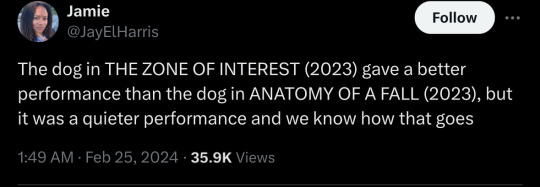#zone of interest
Text

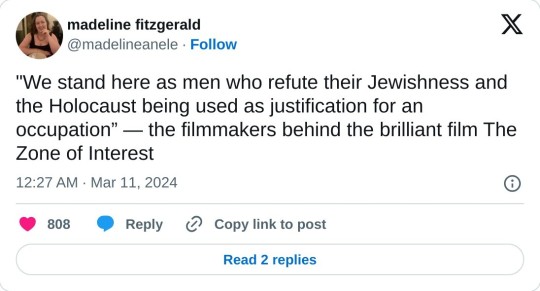

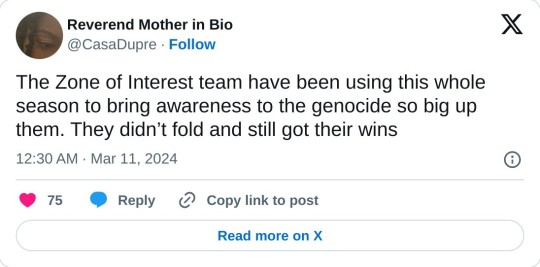
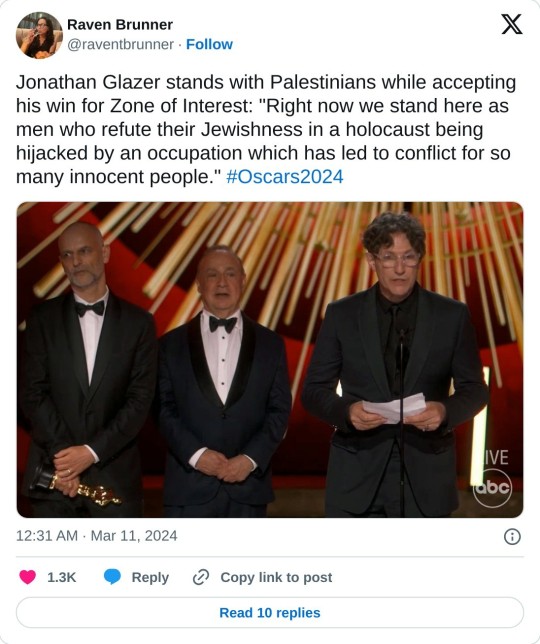
#yemen#jerusalem#tel aviv#current events#palestine#free palestine#gaza#free gaza#news on gaza#palestine news#news update#war news#war on gaza#zone of interest#oscars 2024#oscar awards#the oscars#academy awards#edited
19K notes
·
View notes
Text
so many holocaust movies are voyeuristic endeavors that sensationalize the most extreme suffering but in such a manner that the real horror is not conveyed. zone of interest is a very well produced break from this that shows none of these scenes which weve unfortuately seen a million times now, but focuses on the unnerving atmosphere of a nazi family living an idyllic life right outside of auschwitz. the sound design is sinister and genuinely disturbing, im a bit confused at reviews that come to the conclusion that the holocaust is merely “being reduced to background noise” because the “background noise” in question is kind of the basis of the entire movie. very interesting and had a lot of historically accurate aspects that arent usually included in holocaust movies. corporate cooperation with nazis and major companies role in the holocaust, lebensraum and the nazis settler aspirations in the east, and the appeal fascism had for germans seeking upward mobility and an increased standard of living, and how this was actualized through theft of jewish wealth and property and through nazi leisure programs. its a disquieting mediation on the mentality of perpetrators, complicity, abstraction. since the center of this movie is the extreme cognitive dissonance it takes for this family, self described pioneers of the east, to live in a villa next to a concentration camp, i see why it hasnt gone over with the zionist crowd
4K notes
·
View notes
Text
"We stand here as men who refute their Jewishness and the Holocaust being used as justification for an occupation.”
The filmmakers behind The Zone of Interest, a brilliant and very necessary film that utilises jarring, disturbing sound design to show a contrast of the every-day, mundane domesticity of a family living next to a Nazi concentration camp. Many interpret this film as a commentary piece on how we live out the comfortability of our lives, holding intentional ignorance to the horrors that millions of lives endure; a commentary of ignorance, holding the viewer accountable.
Source:
https://x.com/filmupdates/status/1766985457634521172?s=46
2K notes
·
View notes
Text
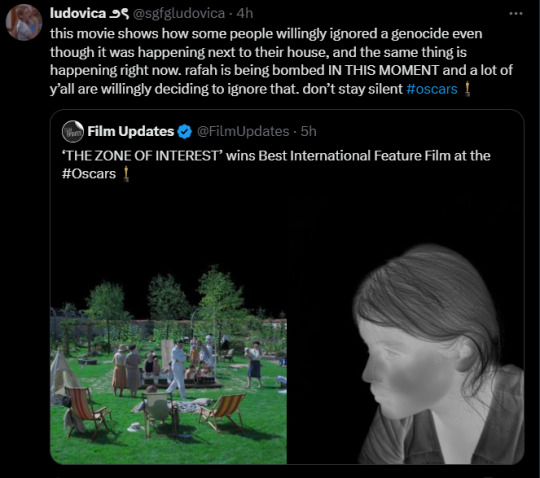
#oscars#oscars 2024#zone of interest#the zone of interest#the oscars#academy awards#free palestine#palestine#free gaza#stand with palestine#current events#palestine genocide#end genocide#genocide#gaza#rafah
859 notes
·
View notes
Text

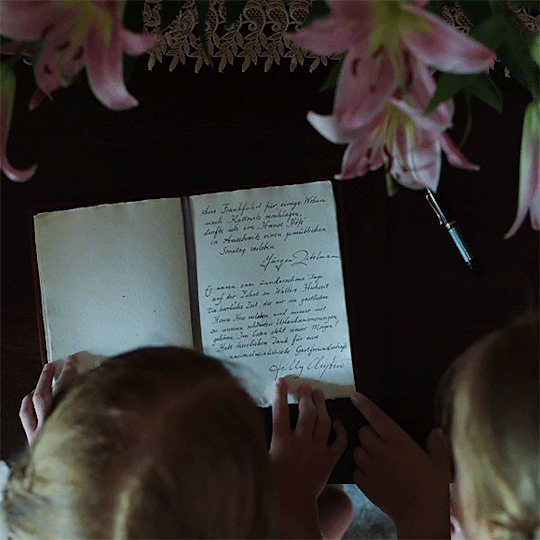
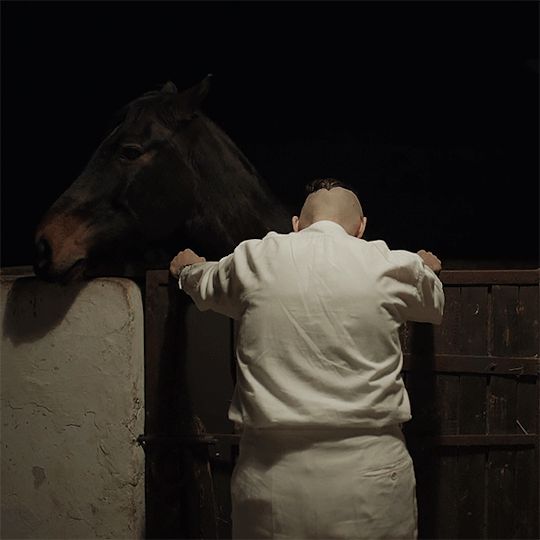
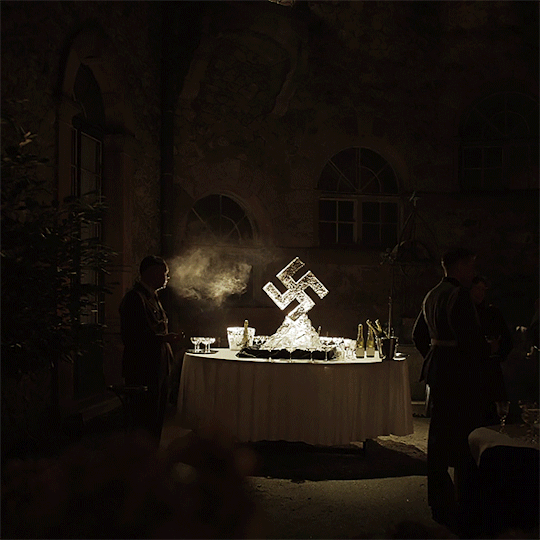
The Zone of Interest (2023) dir. Jonathan Glazer
#the zone of interest#thezoneofinterestedit#zone of interest#2023#jonathan glazer#sandra hüller#filmedit#moviegifs#movieedit#filmgifs#fyeahmovies#dailyflicks#tvandfilm#oscars#oscars 2024#academy awards#oscar nominations#2024 oscars#filmtvdaily#cinematv
681 notes
·
View notes
Text
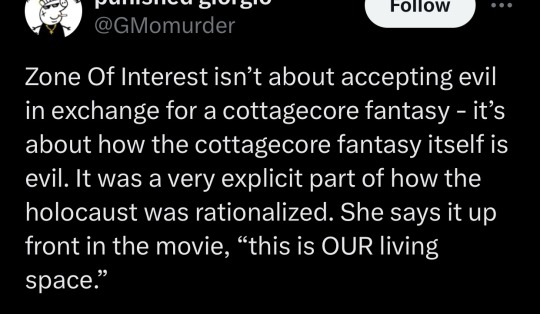
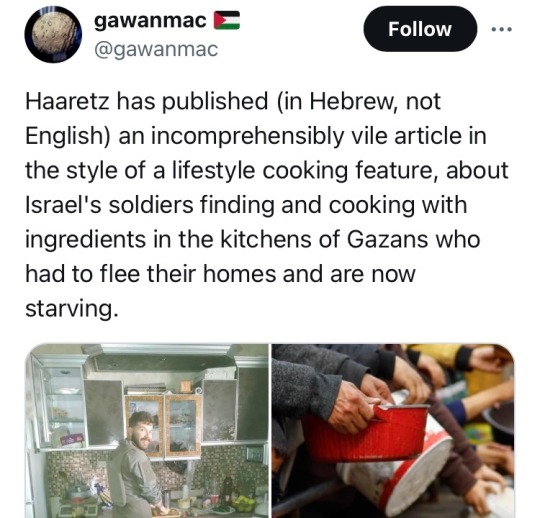
#free palestine#zone of interest#cooking#israel#oscars#Haaretz#idf#iof#gaza#palestine#politics#democrats#woc#Muslims#ww2#holocaust
353 notes
·
View notes
Text





The Zone Of Interest film posters by Neil Kellerhouse
#Neil Kellerhouse#Graphic Design#Art Direction#Film Poster#Film#Movie Poster#Movie#Zone of Interest#The Zone of Interest
393 notes
·
View notes
Text


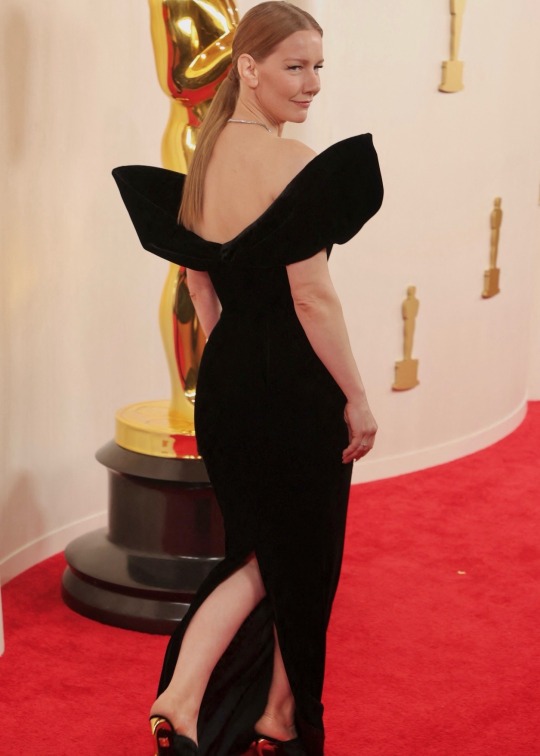
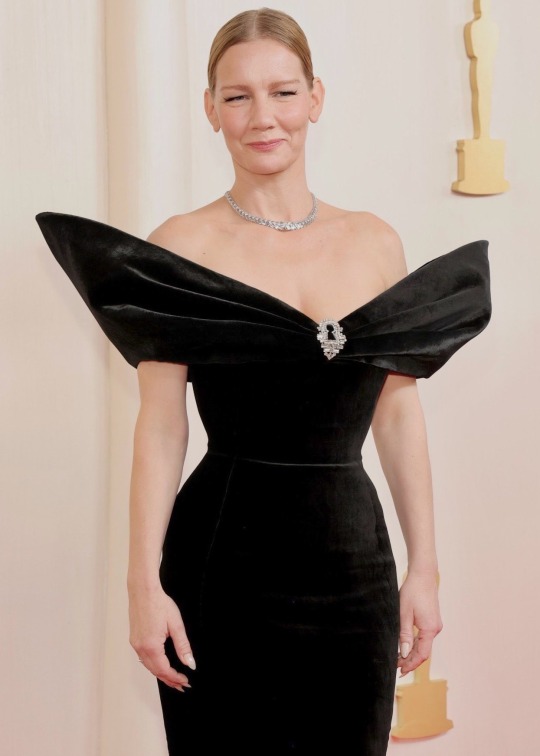
Sandra Hüller in custom Shciaparelli for the 2024 Academy Awards.
#sandra hüller#sandra huller#anatomy of a fall#zone of interest#2024 academy awards#2024 oscars#sandrahulleredit#sandrahülleredit#schiaparelli#flawlessbeautyqueens#flawlesscelebs#flawlesswomen#flawlessfemale#dailywomen#dailyflicks#dailyfilmsource#dailyfilmandtv#dailyfilmactors#chewieblog#ryancoogler#usermandie#userbbelcher#userstream#userrobin#userladiesblr#femalestunning#wonderfulwomendaily#favorite look of the night#userquel#tuserdee
101 notes
·
View notes
Text

Because of reasons, "society" or whoever has to punish the Zone of Interest now after giving it awards (because Jonathan Glazer said stuff people didn't like, so they have to treat the movie like it's an actress from the Scream movies-- those are the rules, I guess).
But the way they're choosing to do it is CNN ran a review from a Wesleyan professor named Peter Rutland reviewing it months after it came out and he's claiming it's confusing ... why bad things are happening... during the Holocaust... at Auschwitz??? "I would not have known why human remains were turning up in a Holocaust movie if I didn't watch a Youtube CinemaSins video" -- a college professor. (I mean, Wesleyan, not a real Ivy, but still).
127 notes
·
View notes
Photo

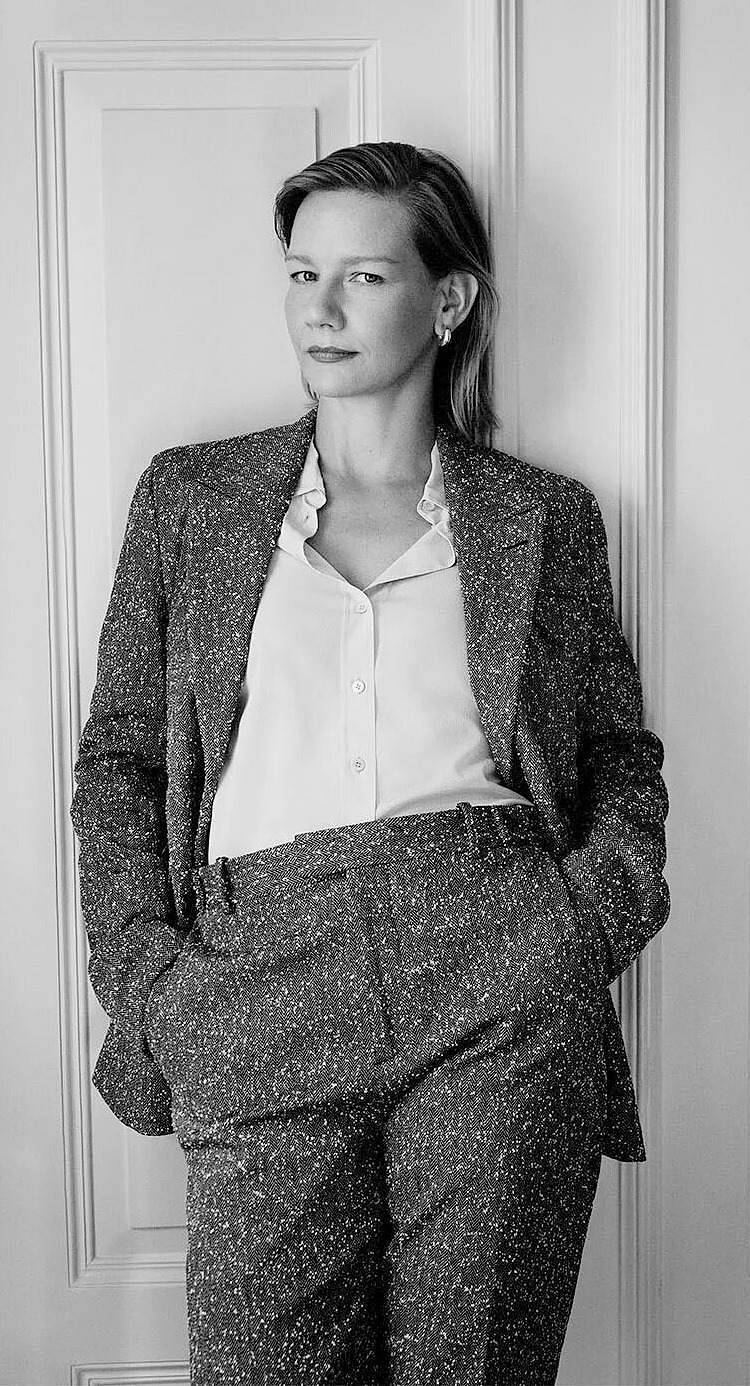


SANDRA HÜLLER for The Hollywood Reporter (September 1, 2023)
📸 Yotam Shwartz
351 notes
·
View notes
Text
More than 450 Jewish creatives, executives and Hollywood professionals have signed an open letter denouncing Jonathan Glazer’s “The Zone of Interest” Oscar speech.
The list of co-signees provided to Variety Monday morning covers a broad swath of the industry including actors (Debra Messing, Tovah Feldshuh), executives (Gary Barber, Gail Berman), creators (Amy Sherman-Palladino), directors (Eli Roth, Rod Lurie), producers (Lawrence Bender, Amy Pascal, Hawk Koch, Sherry Lansing) and representatives (UTA’s Jake Fenton, Gersh’s Jeffrey Greenberg, attorney Craig Emmanuel). About 50 more individuals have added their names since the open letter was first published.

#yemen#jerusalem#tel aviv#current events#palestine#free palestine#gaza#free gaza#news on gaza#palestine news#news update#war news#war on gaza#jonathan glazer#zone of interest
3K notes
·
View notes
Text
The end result is an audacious film, formally experimental and with an almost clinically detached point of view. Mainly shot on hidden cameras, it concentrates on the domestic life of the Höss family (Rudolf, his wife, Hedwig, and their five children), whose house stood just outside the perimeter of the concentration camp, the horror within suggested in glimpses of smoking chimneys but, more disturbingly, through an almost constant ambient soundscape of industrial noise and human shouts and cries. It is an unsettling film: a study in extreme cognitive dissonance. It stayed with me for weeks after I watched it, so much so that I attended another screening to try to decipher its uneasy merging of almost clinical observation and moments of abrupt and jarring experimentalism – the screen turns blood red at one point. On both occasions, it fulfilled Glazer’s aim “to make it a narrative that you, the viewer, complete, that you are involved in and ask questions of”. […]
[Glazer] first started thinking about The Zone of Interest when he read Martin Amis’s novel of the same name not long after its publication in 2014. Having secured the rights with his producer, Jim Wilson, the pair began what would become several years of intense and meticulous pre-production preparation. “Our reading actually took us away from the book and deep into Amis’s primary sources,” he says, “The more fragments of information we uncovered about Rudolf and Hedwig Höss in the Auschwitz archives, the more I realised that they were working-class people who were upwardly mobile. They aspired to become a bourgeois family in the way that many of us do today. That was what was so grotesque and striking about them – how familiar they were to us.”
[…] When he first visited Auschwitz, Glazer went to the Hösses’ house and, to his surprise, found it inhabited by a Polish family who had lived there since the end of the war. “I saw the remnants of the garden, and its proximity to the camp, and the wall, and it was chilling,” he says quietly. “Afterwards I entered the camp and looked at the wall from the other side, trying to imagine what the prisoners must have heard. There is no doubt that they would have heard happiness and gaiety as the Höss children laughed and splashed around in the pool. The film became about the proximity of the horror and the happiness, how one person’s paradise is another’s hell.”
#not the guardian desperately trying to get him to connect this to october 7 at the end and him not really responding#mine#zone of interest
839 notes
·
View notes
Text
Many years ago, the Jewish U.S. scholar Norman Finkelstein wrote a best seller that caused uproar among a group he exposed as the “Holocaust Industry”: people who invariably had not been direct victims of the Holocaust, but nonetheless chose to exploit and profit from Jewish suffering.
Though treated as leaders of the Jewish community, they were not primarily interested in helping survivors of the Holocaust, or in stopping another Holocaust – the two things one might have assumed would be the highest priorities for anyone making the Holocaust central to their life. In fact, hardly any of the many millions the Holocaust Industry demanded from countries like Germany in reparations ever made it to Holocaust survivors, as Finkelstein documented in his book.
Instead, this small group instrumentalised the Holocaust for their own benefit: to gain money and influence by embedding themselves in an industry they had created. They became untouchables, beyond criticism because they were associated with an industry that they had made as sacred as the Holocaust itself.
A follow-up book called the Antisemitism Industry, an investigation into much the same group of people, is now overdue. These ghouls don’t care about antisemitism – in fact, they rub shoulders with the West’s most prominent antisemites, from Donald Trump to Viktor Orban.
Rather, they care about Israel – and the weaponisation of antisemitism to protect their emotional and financial investment. They profit from Israel’s central place in US political, diplomatic and military life:
• as a giant real-estate laundering exercise, based on the theft of native Palestinian land;
• as a laboratory for the production of new weapons and surveillance systems tested on Palestinians;
• as a heavily militarised colonial state, a spearpoint for the West, useful in destabilising and disrupting any threat of a unifying Arab nationalism in the oil-rich Middle East;
• and as the frontier state for eroding legal and ethical principles developed after the Second World War to stop a repeat of those atrocities.
Anyone who challenges the Antisemitism Industry’s – and therefore Israel’s – stranglehold on Jewish representation in public life is hounded as an antisemite or self-hating Jew, as is currently happening most prominently to Jewish film-maker Jonathan Glazer. He is the Oscar-winning director of The Zone of Interest, about the family of a Nazi commandant of Auschwitz who lived blind to the horrors unfolding just out of view, beyond their walled garden.
I wrote an earlier piece about the manufactured furore provoked by Glazer’s comments at the Oscars. In his acceptance speech, he denounced the hijacking of Jewishness and the Holocaust that has sustained Israel’s occupation over many decades and generated constant new victims, including the latest: those who suffered at the hands of Hamas when it attacked on October 7, and the many, many tens of thousand of Palestinians killed, maimed and orphaned by Israel over the past five months.
—Jonathan Cook, the antisemitism industry doesn’t speak for Jews, it speaks for western elites
#politics#palestine#gaza#israel#jonathan glazer#the zone of interest#antisemitism#anti zionism ≠ antisemitism#jonothan cook#weaponized zionism#weaponized antisemitism#war crimes#genocide#zone of interest#ethnic cleansing#hamas ≠ palestine#israel ≠ all jewish people#pro palestine ≠ antisemitism#holocaust industry
79 notes
·
View notes
Text
Recently Viewed: The Zone of Interest

The Zone of Interest is a horror film.
That isn’t a “genre” classification, by the way; the movie lacks the “traditional” tropes and conventions commonly associated with the most narrow, stringent application of that (often reductive) label, which tends to conjure images of ghosts, ghouls, and machete-wielding maniacs. Still, the intent of the story is to terrify the audience—it simply accomplishes this goal through subtler means than, say, Friday the 13th or The Evil Dead. There is, for example, little explicit bloodshed; the atrocities occur almost entirely offscreen. Yet “implication” doesn’t dull the impact of the violence; on the contrary, it somehow feels more confrontational (albeit less exploitative) than outright showing mass graves and gallons of gore.
The narrative revolves around a series of chilling juxtapositions. Seemingly ordinary family meals and joyful birthday celebrations, for instance, are lent a sinister tone by virtue of the fact that the patriarch wears the uniform of a high-ranking SS officer. The mother, meanwhile, tends her garden, taking great pride in the colorful, fragrant flowers and bountiful vegetables; she then casually mentions that she hopes her plants and crops will eventually obscure the drab, dreary concrete wall at the rear of the property—a barrier that borders Auschwitz. Indeed, the protagonists literally live in the shadow of the notorious death camp. They dress themselves in clothing and jewelry confiscated from the Jewish prisoners; the eldest son has even made a hobby of collecting discarded gold teeth and dental plates. At night, the father stands on the back porch, enjoying a cigar as he watches the black smoke billowing above the crematorium chimneys—the perverse epitome of a professional admiring a “job well done.” The household servants—local girls hired from the nearby village—dutifully clear the silverware, scrub the floors, and polish the master’s boots, constantly tormented by the knowledge that their very survival depends upon the “benevolence” of their employers.
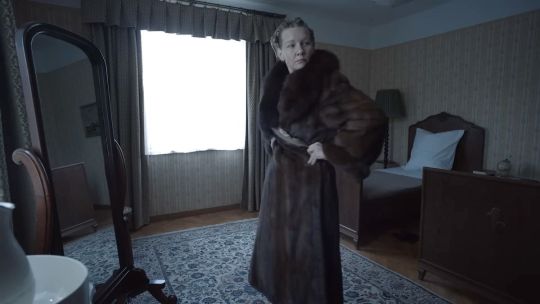
Director Jonathan Glazer observes the action with an unnervingly cold detachment. The predominantly static camera and rigidly symmetrical framing are reminiscent of the works of Roy Andersson and Chantal Akerman. This deliberately mundane, undramatic visual style emphasizes the inherent humanity of the subjects: they’re Nazis, yes, but they’re also people—a somewhat clichéd theme that nevertheless remains relevant and resonant. Anybody, after all, is capable of choosing evil; we must therefore be vigilant, lest we become history’s next monster.
Thus, The Zone of Interest is objective in its presentation, but not nonjudgmental. And that is a vital distinction.
145 notes
·
View notes
Text
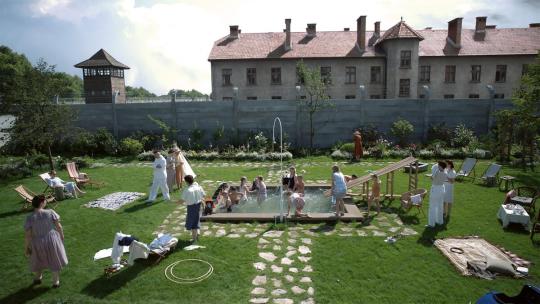



The Zone of Interest (2023) - Jonathan Glazer
This is our home. We’re living how we dreamed we would.
#the zone of interest#zone of interest#jonathan glazer#sandra hüller#christan friedel#film#film still#quote#watched in st louis#watched in hi-point theater#watched in march 2024
89 notes
·
View notes
